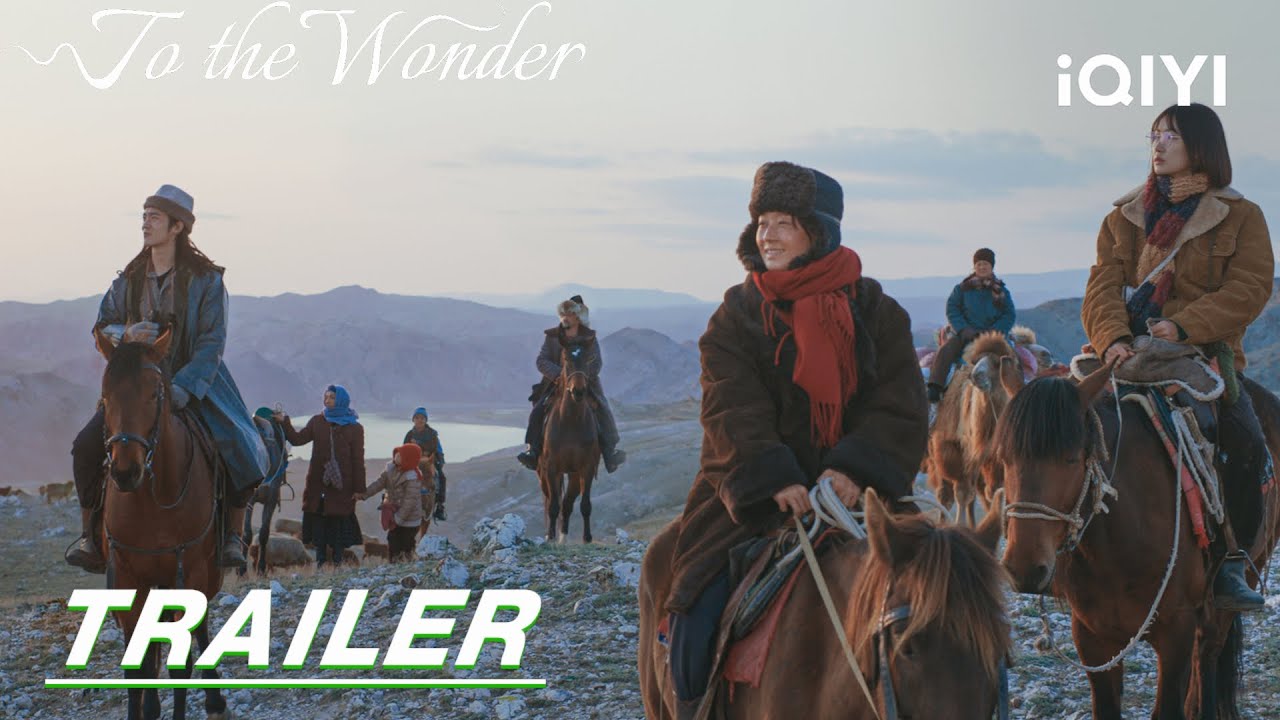I owe a debt of gratitude to CivilWestman, because his suffering through the movie “To The Wonder” incidentally made me aware of a 2024 Chinese TV series marketed under the name. In a world which is deluged with videos not worth watching, this was a happy find.
The TV program follows the mini-series format, invented long ago in the US before Wokeness & DIE destroyed Western creativity – 8 episodes of about 45 minutes each. While there is a storyline, this mini-series is really a last loving look at a fast-disappearing way of life – the nomadic herders in the impressive Altai mountains on the border between China and Kazakhstan.
The story is set a few years in the past in far-western China. The protagonist is a 19 year-old Chinese girl from the Han majority – well-meaning, shy, clumsy – who aspires to become a writer. When she gets fired from her job at a high-end hotel in the bustling city of Urumqi, she decides to make a long frustrating journey to join her hippy-like widowed mother who runs a provision store at the edge of the world, in a village where nomadic ethnic Kazakh herders have their winter quarters. As a Han city girl unaware of nomad ways, the 19 year-old manages to offend many of the villagers.
Meanwhile, far from the village, a handsome young ethnic Kazakh man has been making good progress in the world of breeding & training racehorses, based on his intelligence and his nomad love of horses. However, when his older brother dies back in the village – freezing to death in a drunken stupor – his somewhat fearsome father insists on the young man returning to help with the herds.
Thus the principal characters are in place to join the nomads for their long & arduous spring migration from winter quarters to the lush pastures high in the mountains where they will fatten-up their herds of sheep, horses, and camels. Amidst the beautiful scenery and the hard work of herding, there is time for happiness and traditional celebrations – and for tensions to rise and for things to go seriously wrong. The fearsome father emerges as a tragic figure, fighting a losing battle to maintain the old nomad ways in the face of the rising tide of modernity. He is not the only one who has to face disappointments and difficult choices.
The pacing of the series is deliberate – some would say slow – with an excellent cast playing a range of interesting characters. A substantial part of the dialog is in the Kazakh language (and occasionally Mongolian) rather than Chinese, although the English subtitles do not note which languages are being spoken. This production was filmed with a delicate touch: for example, there is a scene involving a group of naked women sharing a communal bath; if the BBC had made the series, this would have become an orgy of full-frontal nudity – in Chinese hands, it is totally safe for work. With several budding romances, there clearly is love in the air – but it stays in the air; there is none of the torrid tossing-in-the-hay which would have filled the screen in any modern Western production.
Instead, the mini-series conveys a sense of what life was once like for the dignified resourceful hard-working nomads – and of the challenges & rewards of being human, regardless of the level of technology.
